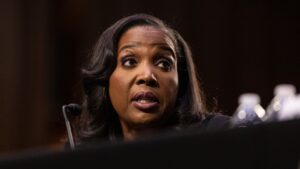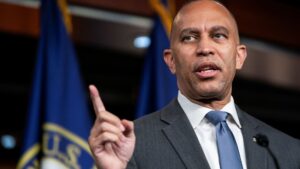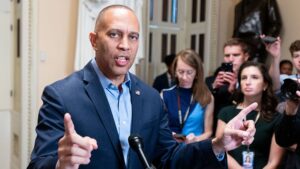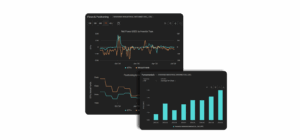This post is adapted from YNAB’s twice-monthly newsletter, Loose Change.
“Just earn more.” This is the hazy solution to a lot of financial worries, the quiet resolution we make to ourselves, the desperate promise we make to our partner in a late-night worry session about money: I’ll just earn more. What this solution has going for it is simplicity; you just have to work hard and wait. There’s cognitive comfort in staying in your groove, not having to consider radical changes to your employment or how you spend.
Where the just earn more approach fails is that it doesn’t actually stop you from worrying about money. Telling yourself that you’ll earn more only means that someday you’ll stop worrying about money. But for now? You’re urgently sitting on your hands.
Just earn more also depends on dim accounting. When are you getting a raise? How much will it be? And how much more money do you actually need to live without worry? The balloon of confidence loses air with every hard question.
About 15 years ago, when my health was at its lowest, a slogan from 12th-century Tibet gave me strange comfort: “Abandon any hope of fruition.” This slogan is not a call to catastrophize, just to let go of having to know how things will turn out. Success or failure, you don’t know. What happens when you stop looking to the future to save you?
Admittedly, this was a tough message for an unemployed, disabled, broke 20-something who was lying on the floor icing his arms all day. I couldn’t cook for myself, couldn’t turn the pages of a book. I was in severe need of fruition.
Here were the unthinkable thoughts: I might never get better. Our financial situation might never improve. We’d stay in this 330 ft² apartment forever, or until we were priced out and had to live in a raft off Coney Island.
To abandon hope of fruition seemed like giving up. Admitting defeat and letting this illness clobber me and eat up whatever promise remained of my life. But as I sat with this slogan in my apartment all day long, while my girlfriend and most everyone else was at work, I realized that the illness hadn’t put my life on hold, I had. Yes, things had dramatically changed and my future was uncertain, but whose wasn’t?
By thinking I couldn’t relate to my career, finances, mental health, or social life until my health was restored, I had made an unconscious decision to focus only on the future. My current life was flyover country on the way to somewhere better. The hope of fruition kept me from relating with things as they are.
Without the constant pressure to figure out The Solution, I ventured out of my isolation. I felt permission to hang out with my friends, started noticing small ways I could reduce my girlfriend’s burden around the apartment. My journal stopped consisting of tortured entries about the future and instead, I started writing about what was actually happening: how I felt, what I saw and heard, and ideas I had (which eventually became my job…).

This is what the YNAB Method has done for my money life. Whereas I used to imagine that I’d be bailed out by the next paycheck, raise, or tax return, now I’m standing on my own two feet. I look at only the money I have right now and put it toward the things I need. When it comes to my future, I’m making my own luck, as it were, saving money each month for my next car repair, hip-hop & tumble classes for my eight-year-old, and a vacation next summer (Jersey Shore, baby!).
A big reason why people don’t look at their finances is the hope that they can get themselves out of this tight spot with more income in the future. It’s already been well-documented that, as a species, we suffer from overconfidence bias. We expect higher revenues, lower expenses and that our investments will grow faster than they actually do.
It’s natural to hope your financial situation will improve, and I hope it does! But don’t wait.
That was the message I received, 800 years in transit, there in my Brooklyn apartment. Don’t wait for your finances to improve, because money isn’t something you wait to happen to you. Being good with money is a skill, one that you can learn right now in your present circumstances. It’s never been a better time. You’ll decide over and over how you want to spend your money. Some will be spent on cilantro at the grocery store tonight and some will be spent in 10 years when you drop off your kid at college. You’re going to make difficult choices sometimes, but in deciding, you are taking charge of the situation.
At YNAB, we believe that how you spend your money is, to a large degree, how you spend your life. So don’t delay in deciding, don’t wait for the perfect, cash-flush moment. Join the lineage of folks who have decided that now is better than never.
Have you ever worried about money? You are not alone. Download YNAB, get good with money, and never worry about money again.
Good With Money: A Look at Real YNABers
I got to meet Sherry at YNAB Fan Fest in Minneapolis, but knew there was more to her incredible story. I dialed her up in Kansas last week to chat.
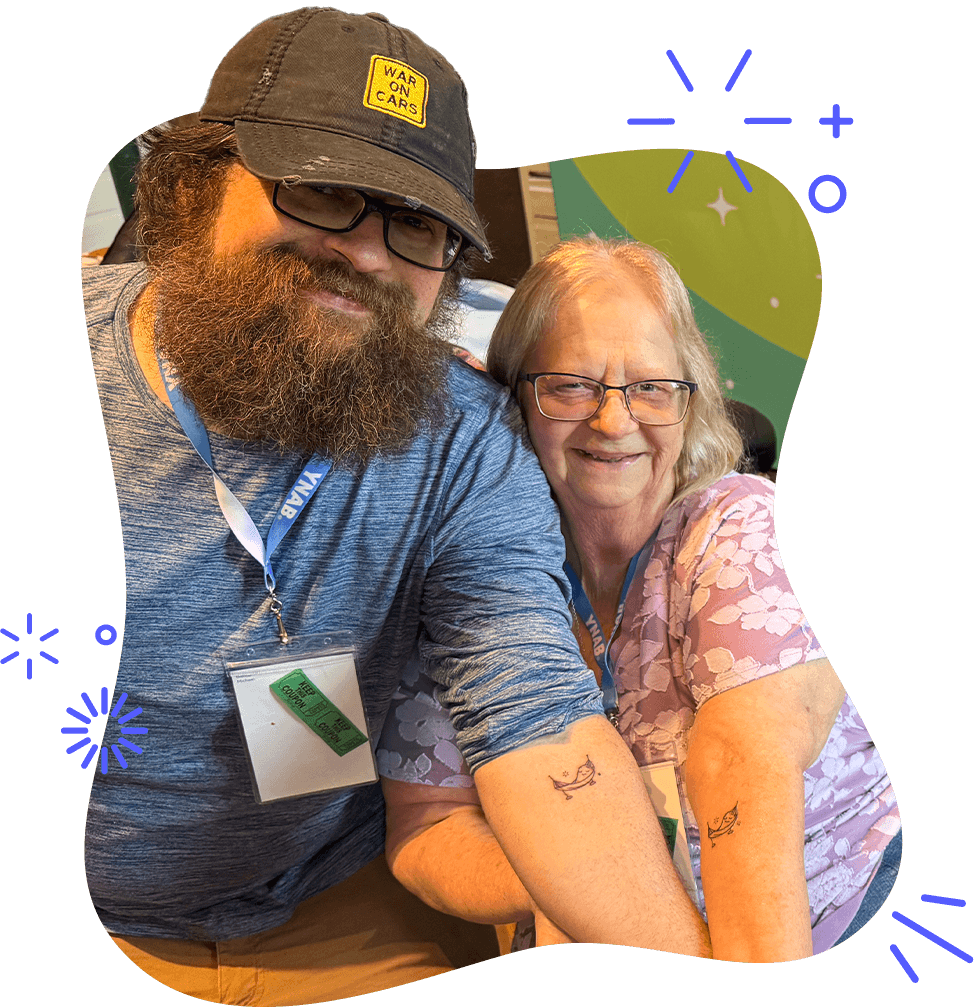
Sherry was born the youngest of 13 children and raised in Sharon Hollow, a small coal mining community in West Virginia. Her father provided for the family as a coal miner (a job he started when he was 14 years old). She said, “I grew up poor, but I was loved and never went hungry. We ate a lot of pinto beans, potatoes, and cornbread. I had responsible parents that didn’t spend extravagantly, covered all the basics and, you know, did their best to make Christmas happen.”
“My parents didn’t talk about money much, especially to me as a kid. Other than, ‘I’m sorry honey, you know we can’t swing that.’” When times were especially hard—when the coal mine closed and their father couldn’t work—the local grocery store “would carry their bill and deliver the groceries right to the house with a slip of everything you bought and how much the balance was.”
Her older brother, who was nearly 28 years older than her, would help her with money for school pictures, yearbooks, class rings and other day-to-day expenses. What she learned about money growing up, she said, “was to work hard and take care of your family.”
When Sherry eventually moved to Kansas with her husband, she made a promise to visit her parents at least once a year in West Virginia. She’d take trips and bring her kids so they could spend time with their grandparents. But flights were expensive and visiting her folks meant using the credit card to cover the costs.
In 2006, her husband accepted a new job in Ohio making a lot more money. After taking a hard look at their mounting credit card, they decided to focus on paying it all off. After being debt-free for about a year, they purchased a modest home.
On Thanksgiving of 2012, her son, Michael, was home for the holidays and told her about an app called YNAB. He showed her how she could pay off the credit card debt from Christmas shopping with money from her savings account so that she could start her journey in YNAB with her only debt being the mortgage. She’s been a YNABer ever since.
Just a few months ago, Michael and Sherry got matching tattoos at Fan Fest Minneapolis, on the same part of their arm.
What’s the tattoo?
“He’s a little seed, there to remind me that YNAB isn’t just about paying the bills and saving up for property taxes and car repairs, but it’s about the fun stuff too. He’s to remind me to grow my wish farm and that it’s okay to spend money in those categories.Because if not now, when? I’m 70 and I have to save for rainy days ahead, but on the other hand, I need to enjoy some of the money we’ve been putting away.”
What category represents your values?
Sherry has a category in YNAB called the “Twinkle Fund” she started in honor of her late sister, Loretta, who would spend money every month to put a “sparkle in somebody’s eye” — buying coffee for a stranger or the meal of someone behind her in line at the drive-through. She’d mail money or a present to anybody: family, friends, strangers. “I remember laughing and telling her on the phone that I couldn’t afford to do that but maybe I could afford to put a twinkle in somebody’s eye.”She started her Twinkle Fund in 2020 during Covid “because God knows everybody could use a surprise, something to lift their spirits. I didn’t spend a lot of money on things.”
On a recent trip to Colorado with her son and daughter-in-law, Sherry sat across from a baby on the shuttle up to Pike’s Peak. “The baby was adorable and kept pointing and smiling and was wanting somebody to hold her. In the gift shop, I saw this soft, adorable bighorn sheep which we had seen on the way out. And I walked up to the mother and said, ‘You’re going to think I’m crazy… and I told her about my sister and the Twinkle Fund and I said, ‘Would it be okay if I buy this for your daughter?’ And she said, “Oh that would be wonderful!”
So I turned around and gave it to them, and the mother came up to me about two minutes later with tears in her eyes and said, “My mom passed away when I was pregnant with my little girl. And you will never know how much this meant to me. It felt like she had a grandma for that moment.”
Anything else?
“My net worth is probably 20 times what it used to be before YNAB. I feel rich when I have running water, when I don’t have to use an outhouse. I have central heat and air. I have books to read that I’ve never read before. And I joined something called BookBub that sends you emails with free digital books from Amazon. I have 3,783 books on my Kindle that I paid zero money for.”Sherry had never been into a public library until after she left home. As a child she often wished she had more access to books and reading during the summertime.
“So, I’m rich. I’m rich beyond my wildest dreams in family, love, and I’m stable in my finances. That makes me just feel rich and very lucky.”



